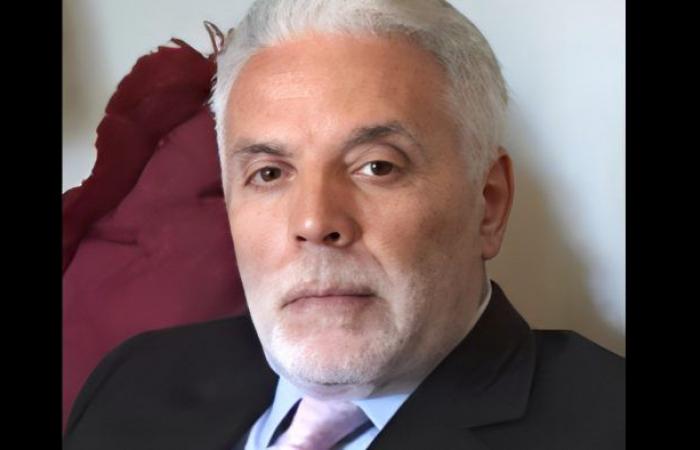Recently, statements by Algerian leaders on the question of the Moroccan Sahara have highlighted their nervousness about the evolution of this issue and, above all, their concern about the growing support enjoyed by the Moroccan autonomy proposal.
In front of Parliament, on December 29, 2024, Algerian President Abdelmadjid Tebboune, who does not indulge in nuance, described the Moroccan proposal as «falsification.» In the contemptuous tone he favors, the Algerian head of state spoke of «fables» and “tales of J’ha” in a road accident which was removed from the official text broadcast by the Algerian media. Tebboune recalled, as he regularly does, that“there is no hatred towards this or that country” and that the Sahara question does not arise from a “charitable association”but from the UN decolonization commission. On his way, Tebboune admitted that Algeria has entered into conflict with certain European countries which, according to him, are “exceeded international legality”alluding to the change in position of Spain and France on this issue. He did not mention the United States or the Gulf countries, to name a few. Nor has he explained to the Algerian people why his regime is “came into conflict” with these countries in a matter that does not concern Algeria.
The next day, the Algerian Minister of Foreign Affairs, Ahmed Attaf, returned to the charge to confirm and complete the remarks of his president. He described the Moroccan plan as “complete nothingness”adding: “It contains nothing. It’s filler.” As striking proof, Attaf insisted, the document only covers “three and a half pages” (!). Finally, the Algerian minister affirmed that, since 2007, none of the four personal envoys of the UN Secretary General “did not dare present the Moroccan proposal as a basis for discussions”and he concludes: “because none of them are convinced of the seriousness” of this proposal.
The Algerian minister contradicts himself when he tries to delegitimize the plan while accusing Morocco of never having proposed it to the Polisario.
Concise, the plan nevertheless contains everything it should contain, namely the broad outlines of a plan for a realistic political solution in line with the wishes of the United Nations Security Council.
The idea of autonomy is not new. The Moroccan proposal, like the “Framework Agreement on the Status of Western Sahara” before it, known as the Baker I Plan, provided for a distribution of powers between the State and the Region. This plan, which was presented in 2001 and accepted by Morocco, provided for the organization of a referendum within five years.
In February 2006, the Minister Delegate for Foreign Affairs and Cooperation of Morocco declared regarding autonomy: “We are willing to take this risk as a compromise. We are prepared to go as far as we can to negotiate.”
In the letter dated April 11, 2007 addressed to the President of the Security Council by the permanent representative of Morocco to the United Nations and presenting the Moroccan Initiative for the negotiation of a status of autonomy for the Sahara region , it is specified in point 27 of the annex that “the autonomy status of the Region will be the subject of negotiations and will be subject to a free referendum consultation of the populations concerned. This referendum constitutes, in accordance with international legality, the Charter of the United Nations and the resolutions of the General Assembly and the Security Council, the free exercise by the populations of their right to self-determination.
The proposal was favorably received by the Security Council, which praised the “serious and credible efforts made by Morocco to move forward towards a settlement”while leaving it up to the parties to debate it (resolution 1754 of 04.30.2007). Since then, the Security Council has reiterated its call every year.
However, Algeria refuses to assume its responsibilities and clings to outdated concepts.
As for the personal envoys of the UN Secretary General, we know well that their roadmap is defined by the Security Council and their mission framed by the resolutions of this council. The current personal envoy, Staffan de Mistura, noted in his October 16, 2024 briefing to the Security Council that “the concept of autonomy has generated interest.” From Mistura to Relevé that «the Moroccan autonomy plan has gained ground with certain international actors.”
We are far from Attaf’s discourteous and skeptical remarks.
No offense to him, the Moroccan proposal is “serious, credible and realistic.” By maintaining the opposite, Tebboune and Attaf ignore the position expressed by many countries, and not the least. On this point, Algeria is isolated.
Algerian officials, in their crusade against the Moroccan initiative, have added a new element to their narrative. This time, President Tebboune attributed the authorship of the autonomy plan to France, under the mandate of Jacques Chirac. “The plan,” he said, “was not born in Rabat or Marrakech, but in Paris.”
Ahmed Attaf followed suit to say that the idea was born in France. However, Attaf forgets that on July 31, in his reaction to President Macron’s letter to King Mohammed VI, he declared that “France has now fully adopted the Moroccan proposal.” The Algerian minister hammered home, to leave no room for doubt: “The Moroccan proposal concerning Western Sahara has become an entirely French proposal.”
It is true that in the meantime, Abdelaziz Rahabi declared: “This is not a turnaround, it is France which designed the autonomy plan, it has always supported it, it has been an ally of Morocco, this is not new.” Cet “former diplomat and former minister” misled everyone.
Perhaps Attaf will explain to us by what subterfuge a plan, according to him “French”could suddenly be “adopted by France” ? Why did Jacques Chirac, despite all the affection he had for Morocco, not support the Moroccan initiative and why, for a long time and until July 30, 2024, France stuck to its position of well-known principle: the Moroccan proposal is a “serious and credible basis for discussions”…
Ultimately, the Algerian contradictions, and they are neither the first nor the last, confirm the disarray of this country’s diplomacy, which realizes that the leverage it has long used against Morocco is disappearing.






